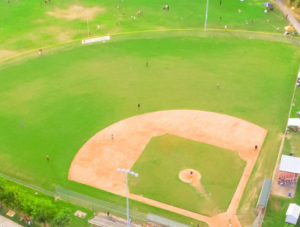Although graduation ceremonies, sporting events and big arena concerts are all exciting, the frustration of finding on-site parking—and, later, leaving without excessive traffic—can be enough to keep some folks at home.
Special events often overcrowd parking facilities at times that might otherwise be considered off-peak. A college football game on the weekend, for instance, may rely on the same parking structures that students use for parking on school days. It’s a burden that facility operators need to consider when planning an event. The University of North Carolina Wilmington, for example, has implemented a system that requires special event hosts to plan months in advance and imposes increased parking rates. UNCW’s setup is maintained primarily through its parking department’s human labor, a resource that, though abundant, costs a great deal of money both in the immediate and over a long stretch of time.
Many prominent methods of controlling special event traffic require not only permanent staff working 40-hour weeks, but also temporary day-of help. The July 2017 issue of Parking Magazine details The University of California at Los Angeles’ system in which, during a special event, each parking facility on campus falls under one manager’s supervision. The managers all maintain contact with one another via radios that can also connect them with the university’s police department and traffic direction team.
In some cases, extra staffing may not be an option to help the parking situation. Take Colgate-Palmolive for example: the facility would hit capacity without fail, and the parking situation would be difficult when the campus hosted special events. A midday special event would put a wrench into an already-treacherous parking situation at a time of day usually known to be more bearable for drivers.
Eventually, Colgate-Palmolive decided that it needed a solution to control parking during its busiest hours. It managed to find something that could do exactly that, and then more.
Smart parking systems make events special again
Parking management systems guide drivers directly to open parking spots and indicate the number of open spots per garage level, reducing the labor involved in maintaining a facility. Visitors and frequent customers alike stand to benefit; Colgate-Palmolive reported nearly universally positive feedback upon installing its system, which includes a level guidance system and LED vacancy indicators.
Events at especially busy parking times—whether during rush hour or a special event—parking management systems drastically decrease the amount of time that drivers spend finding open spots. Gone are the days of entering a garage and not knowing whether parking is available there, as are the woes of temporary staff grasping at straws in futile attempts to prevent gridlock. The solutions that parking management systems provide have been successfully implemented on the scale of special events as grand as the Olympics, not to mention some of everyday life’s most frustrating parking situations, including airports and commuter lots.
Once a parking management system is installed, minimal maintenance is required. Indeed, facility managers save as much time as drivers do when parking management systems are in place; the long, unending search for, and training of, special event staff to ensure best traffic flow is lessened, not to mention the regular stress of tending to the needs of a large crew of employees. A bonus: whereas human staff may struggle somewhat to track the number of cars parked in a garage in real time, parking management systems do exactly this. For facility managers concerned about special event guests overstaying their welcome or returning to the facility at other times, when they’re not welcome, this added benefit can be quite important.
Parking management systems organize even the most imposing forms of chaos. By reducing the frustration of finding parking and countering gridlock, parking management systems ensure that the focus on the event will remain on just that, and not about what to do with the car when you arrive.

